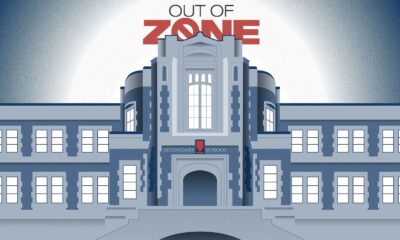Business
Primary Principals Secure Pay Rise Through Negotiation, Avoid Strikes

The Primary Principals Collective Bargaining Union has successfully negotiated a pay increase for its members, marking a significant achievement in educational labor relations. After four months of discussions with the Ministry of Education, the union agreed to a 2.5 percent salary increase this year, followed by a 2.1 percent rise in the next. This agreement, presented last week by Public Service Commissioner Sir Brian Roche, will span a total of 26 months.
In a clear show of support, 85 percent of the union’s 515 members participated in the vote, with an overwhelming 95 percent endorsing the new agreement. Union president Mark Ellis attributed this positive outcome to constructive communication and a commitment to good-faith negotiations.
“Our membership has gone and accepted it as a good offer,” Ellis stated. “We can appreciate that we’re in a crisis for living costs and living wages. Our principals want to do their jobs, be in front of kids, and support teachers. The good-faith negotiations continued because we had not threatened strike action,” he elaborated.
Exploration of Tenure-Based Pay
An important aspect of the agreement involves a commitment to explore tenure-based pay options. This initiative aims to ensure that principals receive compensation based on their experience rather than solely on the size of their schools. “There’s an opportunity to continue dialogue with the ministry around remuneration for principals under areas of experience, not just the size of the school,” Ellis noted.
Despite this successful negotiation, not all education professionals are avoiding industrial action. Members of the New Zealand Educational Institute (NZEI Te Riu Roa), which represents more than 40,000 education workers, including teachers and principals, are still expected to initiate a nationwide strike on October 23, 2023.
The ongoing labor actions reflect broader tensions within the education sector regarding salary and working conditions. While the Primary Principals Collective Bargaining Union has achieved its goals through negotiation, the situation for other educational workers remains uncertain.
This development is not only significant for the involved parties but also highlights the challenges facing educators in New Zealand today. As discussions continue, the focus will remain on achieving fair compensation and support for those dedicated to educating the next generation.
-

 World1 week ago
World1 week agoPrivate Funeral Held for Dean Field and His Three Children
-

 Top Stories2 weeks ago
Top Stories2 weeks agoFuneral Planned for Field Siblings After Tragic House Fire
-

 Sports3 months ago
Sports3 months agoNetball New Zealand Stands Down Dame Noeline Taurua for Series
-

 Entertainment3 months ago
Entertainment3 months agoTributes Pour In for Lachlan Rofe, Reality Star, Dead at 47
-

 Entertainment2 months ago
Entertainment2 months agoNew ‘Maverick’ Chaser Joins Beat the Chasers Season Finale
-

 Sports3 months ago
Sports3 months agoSilver Ferns Legend Laura Langman Criticizes Team’s Attitude
-

 Sports1 month ago
Sports1 month agoEli Katoa Rushed to Hospital After Sideline Incident During Match
-

 World3 weeks ago
World3 weeks agoInvestigation Underway in Tragic Sanson House Fire Involving Family
-

 Politics2 months ago
Politics2 months agoNetball NZ Calls for Respect Amid Dame Taurua’s Standoff
-

 Top Stories2 weeks ago
Top Stories2 weeks agoShock and Grief Follow Tragic Family Deaths in New Zealand
-

 Entertainment3 months ago
Entertainment3 months agoKhloe Kardashian Embraces Innovative Stem Cell Therapy in Mexico
-

 World4 months ago
World4 months agoPolice Arrest Multiple Individuals During Funeral for Zain Taikato-Fox





















